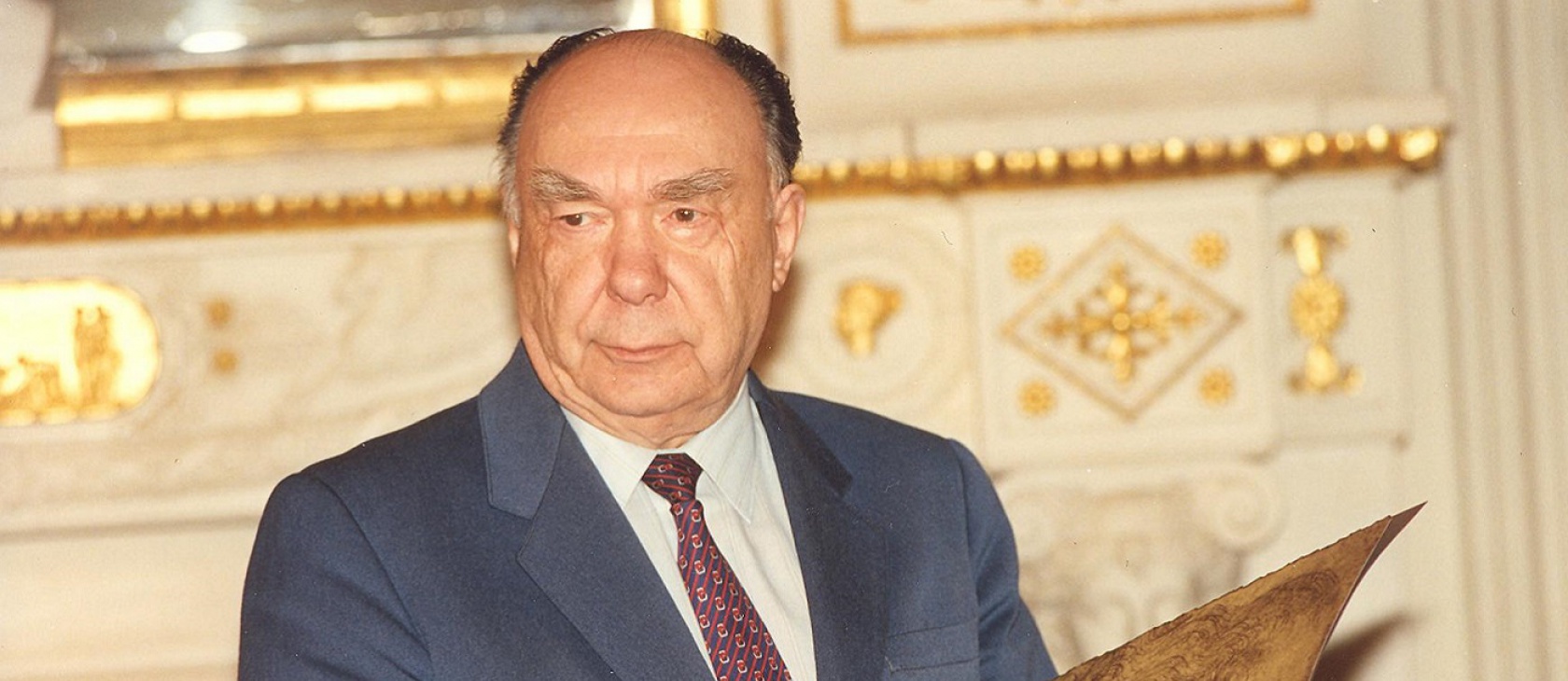The grim centenary of Russia’s Bolshevik Revolution reminds us of the cruel experiment that left tens of millions dead, and incapacitated generations of those who lived during its reign or aftermath, leaving them without hope – or bread. Instead of focusing on those Soviet leaders who brought this about, let us remember the man who said, “We should run from such experiments as from a fire,” as he designed perestroika and led the USSR towards renewal. Alexander Yakovlev’s intellectual journey in search of truth brought him away from Marxism towards liberty and democracy, and it is providential that through his journey the Soviet Union found its way to a peaceful liberation from communism. Yet despite the communist shackles coming off, its spiritual burden remained – which is something for which Yakovlev urged all the Russians to repent. While the communist mass murderers continue to be praised by some for their “achievements,” the architect of perestroika received threats, and was vilified and dubbed a traitor up until his death in 2005. This makes celebrating his contribution all the more essential.
Yakovlev was a man of humble origins. He was born in 1923 in a small village, Korolevo, near the city of Yaroslavl, 160 miles northeast of Moscow, to a peasant family of loyal communists. After finishing secondary school, in 1941 he was conscripted into the Red Army, where he fought until he was discharged in 1943 following an injury. Thereafter, he joined the Communist Party, studied history and was offered to work for the Party at the local Department of Propaganda and Agitation. His career really took off upon his transfer from Yaroslavl to Moscow in 1953 (following Stalin’s death), where he rose through party ranks. In 1969, he was appointed head of the propaganda department.
There is a harmony of opposites: cooperation of classes, solidarity of classes. And only because of this does society thrive and develop.
His illustrious career was cut short in 1972 when, on the eve of semicentenary of the founding of USSR, Yakovlev published an article attacking Russian nationalism. This led to his exile as an Ambassador to Canada. It was in 1983 in Canada that Yakovlev held a long conversation with Mikhail Gorbachev, during which they formulated the ideas of perestroika, or restructuring. Within two months, Yakovlev was back in Moscow, placed at the helm of an economic state-run think tank, and in 1985 (upon Gorbachev becoming general secretary) moved back to his familiar territory of propaganda.
Perestroika, accompanied by glasnost (openness), entailed a gradual introduction of freedom into Russian society and economy. This process allowed for some market-like independence of state companies, such as more flexibility in contracts and even retaining a part of the profit within companies. Glasnost showed the importance of ideology. Once in charge of it, and with daily support of Gorbachev, Yakovlev was able to lift the suppression of political, cultural, and media discussions. Soviet censorship was relaxed, and previously banned works such as Orwell’s 1984, Nabokov’s Lolita, and Pasternak’s Doctor Zhivago became freely available to Russians. It is primarily thanks to Yakovlev’s ideas and his role in implementing them that Gorbachev would be awarded with the Nobel Peace Prize 1990. Meanwhile, Yakovlev’s life has attracted attention of but one historian, Richard Pipes, who published Yakovlev’s only biography in 2015.
Since Khrushchev’s Stalin-denouncing secret speech of 1956, which Yakovlev attended in person, he became doubtful of Marxism and tried to resolve its numerous inconsistencies. Following this speech, Yakovlev asked to study at the Academy of Social Sciences, where he recounts studying “feverishly” and reading “copiously” in search of an answer. Eventually, he realized the Marxist ideology itself was flawed: “It was at the academy, while immersed in studying primary sources, that I became fully conscious of the hollowness and unreality of Marxism-Leninism, its inhumanity and artificiality, its inherent contradictions, its demagogy and fraudulent prognostications,” he wrote in A Century of Violence in Soviet Russia. He concluded that the only system viable of being an alternative to Marxism was one based on freedom of choice, private property, and morality which, according to Yakovlev, necessarily accompanies individual freedom.
In his 1993 book The Fate of Marxism in Russia, Yakovlev points out the numerous flaws of Marxism. Its underlying idea of class struggle is incorrect because:
There is a harmony of opposites: cooperation of classes, solidarity of classes. And only because of this does society thrive and develop. Any organization is harmonious cooperation; any division of labor is a mutual complement of diverse and opposite functions.
Marxism wrongly believed human nature may be altered by changed social relations. It is not capitalism which leads to alienation, as Marx predicted, but Marxism, wrote Yakovlev, since the abolition of private property alienates the workers from the fruits of their labor.
"To descend step by step down 70 years of Bolshevik rule into a dungeon strewn with human bones and reeking of dried blood is to see your faith in humankind dissolve."
Marxism did bring about liberation, but it was liberation from responsibility, as it bred laziness and corruption. According to Yakovlev, the expropriation “deformed the psyche, people’s consciousness. It undermined the motivation for constructive labor and reduced people’s responsibility for their own welfare and lives.” In turn, this resulted in bureaucratic dictatorship.
When confronted with the failings of the realization of their ideology, Marxists were (and are) armed with various excuses: either the timing for the revolution was “wrong”; or the Russians mistakenly implemented the ideas of the “false” Marx, rather than the “true” Marx; or the problem was Stalin rather than Marxism; or … As Yakovlev attests, “The theoretical legacy of Marxism ought to be judged today, not by its moral and intellectual intentions, but by what was accomplished on its basis and its ability to see the contemporary world as it is. Neither criteria proves the efficacy of this doctrine.” Moreover, when Marx’s “ideas became reality, they revealed their futility as well as their destructiveness.”
The consequences of this destructiveness shook Yakovlev to his core. In 1988, Yakovlev was put at the helm of a recently established Commission on the Rehabilitation of Victims of Political Repression, charged with studying the materials of repression during Lenin’s and Stalin’s reigns. As he recounts in A Century of Violence in Soviet Russia, “The task has been a weary one. To descend step by step down 70 years of Bolshevik rule into a dungeon strewn with human bones and reeking of dried blood is to see your faith in humankind dissolve.”
The Commission disclosed the diabolical crimes against the “unnecessary” peoples of the USSR: the decimation of seven million kulak households; the widespread hostage taking, special orphanages, and even concentration camps for “socially dangerous children” of families targeted by repression; the deportation to forced labor camps of the “twice betrayed” prisoners of war of Soviet origin; the repressions of merchants and intelligentsia.
He concluded that the only system viable of being an alternative to Marxism was one based on freedom of choice, private property, and morality which, according to Yakovlev, necessarily accompanies individual freedom.
As Yakovlev reveals, particularly horrifying was the terror against the clergy: “The documents bear witness to the most savage atrocities against priests, monks, and nuns: they were crucified on the central doors of iconostases, thrown into cauldrons of boiling tar, scalped, strangled with priestly stoles, given Communion with melted lead, drowned in holes in the ice.” All the while, Lenin agitated that the level of murders was too low, instructing his followers to “launch merciless mass terror against kulaks, priests, and White Guards” (Lenin, quoted by Yakovlev). It is precisely these foundations of fear and violence that made the USSR incapable of reform.
Perestroika and the subsequent collapse of the Soviet Union liberated the Russians from communism – yet according to Yakovlev this had to be complimented with a spiritual liberation, Russian repentance for the sins of communism, and a legal trial of Bolshevism. He urged:
The twentieth century has come to an end. For Russia, it was the most terrible, the bloodiest century, shot through with hatred and intolerance. It would appear to be time to come to our senses, repent, ask forgiveness of the still-living survivors of the concentration camps, kneel before the graves of the millions of people who were shot or who died of hunger, and realize, at long last, that we lived in a criminal state, helping it to enslave us – all of us together and each of us separately.
Alas, his calls fell on deaf ears, and Yakovlev himself was soon dubbed a traitor and Judas, as he constantly received threats, had funeral wreaths laid on his doorstep, his son shot at, and daughter’s car incinerated.
Unlike thousands before him, Yakovlev could not have chosen to lead a comfortable life and enjoy the rich privileges of the communist elite, because he had realized the only alternative to Marxism was individual freedom. Being a humble man, he most likely did not have himself in mind when he wrote:
Society does not become enlightened all at once, especially a society that is living in non-freedom but does not know it. Enlightenment begins with solitary individuals and then becomes massive and irreversible when life and circumstances begin to give birth, to reproduce on a mass scale the bearers of new consciousness. Such processes are produced from the coming into being of the individual.
Communism in the USSR would have fallen with or without Yakovlev, but his wise guidance and intellectual rigor ensured that the most brutal regime in humankind’s history ended with a miraculous lack of bloodshed and violence. Today, humanity would prosper if other Yakovlevs would inspire the leaders of Venezuela, Cuba, North Korea, and – once again, unfortunately – the unrepentant Russia.




